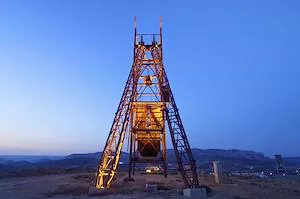Hydrocarbons: transfer of hydrocarbons fields

On December 6, 2006 the Argentine Congress sanctioned the law that amends Hydrocarbons Law No 17, 319, and transfers to the Provinces and the City of Buenos Aires the domain over all oil and gas fields located in their territories and in the adjacent sea up to 12 marine miles from the base line according to Law No 23,968.[1]
Despite the assumption of the domain and the administration of the fields by the Provinces, the National Government is keeping for itself the design of the energetic policies. The Law provides that the fields located after the 12 miles from the coast to the exterior limit of the continental shelf will remain in the National Government domain. Furthermore, the National Executive Branch will be the Authority with power to grant transportation concession when: (i) the transportation concession goes through two or more Provinces; and (ii) the principal aim of the concession is to export.
Section 2 of the Law approved by the Congress, which has not been promulgated by the National Executive Branch yet, provides that all exploration permits and exploitation concessions granted by the National Government over fields located in the provinces’ territories and in the sea-bed and subsoil next to them will be fully transferred to the Provinces. Section 3 establishes a 180 days term, from the day in which the law is promulgated, in order to agree the transfer to the local jurisdiction of: (i) the transportation concessions related to the exploitation concessions above mentioned; and (ii) the transportation concession that begins and end in the same province provided that their main aim is not to export.
It is expressly stated that the transfer will not affect the rights and obligations of the concession titleholders, or the basis for the royalties’ liquidation, which shall be calculated according to the concession title and paid to the province where the field is located. The Law also provides that the National Government and the provinces will exercise all their faculties according to the provisions of Law No 17,319. The Granting Authority will establish which will be their Application Authorities to which all the sums regarding exploration and exploitation canons, fees and fines shall be assigned to.
After the Law is promulgated the Provinces will have the following faculties:
(i) to exercise in a complete and independent way all activities related to the supervision and control of the exploration permits and the exploitation concessions transferred by the Law;
(ii) to demand the fulfillment of all applicable legal and/or contractual obligations in connection with investments, rational exploitation, information and canon and royalties payment;
(iii) to establish the extension of legal and/or contractual terms;
(iv) to apply the sanctions provided in Law No 17,319;
(v) all the other faculties related to the granting power pursuant to Law No 17,319.
The Law provides a 180 days term as of its promulgation in which the National Executive Branch and the Provinces shall take all necessary actions in order to agree on the “Oil Information Transfer Agreement” according to the provisions establish by the Law.
By the time this article is being published the Executive Branch has not yet promulgated the Law approved by the Congress. Therefore, even when is not likely, the Law may suffer some modifications.
This insight is a brief comment on legal news in Argentina; it does not purport to be an exhaustive analysis or to provide legal advice.